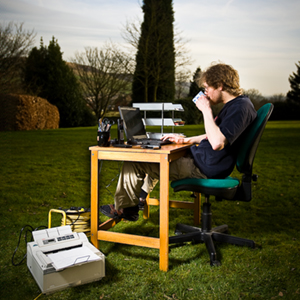When we “go to work” in the arts, we often mean actually going to an official and shared physical workspace. There are desks and phones and (sometimes) doors and walls where groups of us work with each other, or at least perform a sort of parallel play.
Digital and telecommunications devices have lengthened the tether that connects us to our workplace and our workmates. But we still often assume a headquarters or home base where we keep our stuff, share a coffee pot, and get our postal mail. Telling your team that you’re “working remotely” implies a difference and a distance from this physical place, and that you will eventually return.
But there’s more and more opportunity and reason to cut the tether altogether — to abandon a shared, physical “home base” for an entirely remote or virtual work network that doesn’t have a street address.
One arts organization that’s just made this choice, and this transition, is Fractured Atlas, an arts service and artist support organization legally (if no longer physically) based in New York. As a board member, I recently wrote a post about this transition and the operational and existential questions it calls to my attention.
If you or your team is already working from a distance much of the time, and you’re beginning to wonder if the people and processes might benefit from a more “free range” approach, Fractured Atlas’ effort will be one to watch. Fortunately, they’re committed to documenting the experiment as they go.


